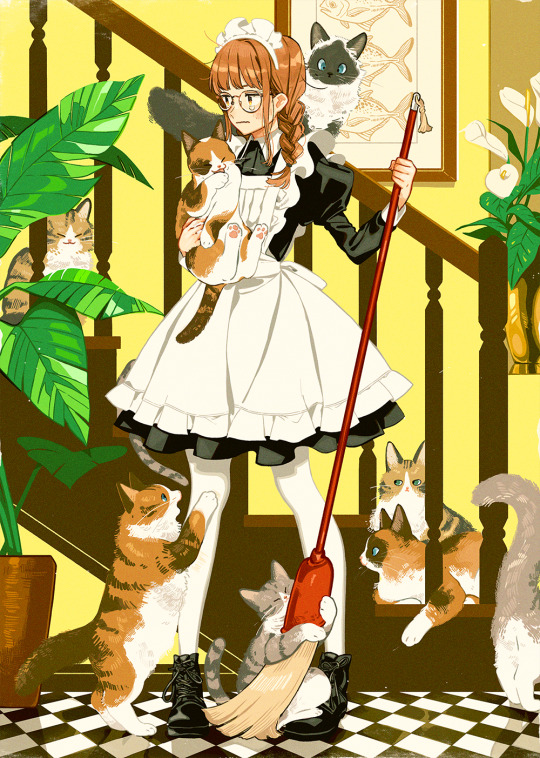Text
“There is a voice that doesn't use words. Listen.”
Rumi
3K notes
·
View notes
Photo



beta arceus! (o o) based on @lunaklim‘s beta arceus!
40K notes
·
View notes
Text
Book👏🏻Review👏🏻 ‘Capital in the Twenty-First Century’ by Thomas Piketty, Arthur Goldhammer (((Translator)))
“Democracy will never be supplanted by a republic of experts—and that is a very good thing.”
It would have been nice if he had made an actual argument, not just a proclamation!
I agree that it's not a good thing. Experts tend to have a narrow view, and their expertise often seems to make them arrogant. Experts predicted Trump would lose the election. Experts predicted that the British would not vote for brexit. Experts tend to live in ivory towers and echo chambers, and in a world of words and not deeds, far removed from the real lives of people whom to the experts are merely numbers on a screen. Plato's Republic. I would also like to know how he came to the conclusion that it would never happen. He doesn't say.
Thomas Piketty is an expert. He does however criticise the aloofness of his fellow experts later in the book, and that is to his credit.
'Note that an important part of these services, especially in health and education, is generally financed by taxes, and provided free of charge.' Do I need to point out that taxes still need to be paid? How is it free? You are just being forced to buy something, whether you want it or not, and whether you use is or not.
We are forced to pay for police that don't protect us, and just silence us instead. We are forced to pay for a national health service that is disgustingly inefficient, and will probably put you into 'managed decline' in exchange for your lifetime of tax payments. None of this is 'Free'. We pay for it. With our taxes.
Piketty also suggests increasing taxes on the wealthy to a staggering degree. He also acknowledges that for this to happen, it would have to be adopted by all countries pretty much simultaneously, and that this is utopian and 'unlikely to happen in the foreseeable future'. Yet he suggests comparing any other proposed solutions, including our current system, to this utopian superstate of his own devising. He doesn't really seem to explain why he thinks we should do this, and I think that this could be considered a rather bad idea; Look at how many problems our current system has compared to this hypothetical system that doesn't have any problems at all!
This: \/
https://www.youtube.com/watch?v=lJMuVC8Q5_g
Also this: \/
https://www.youtube.com/watch?v=Isp4ssqJQ_g
https://www.youtube.com/watch?v=-A6JF8cB6Nw
Piketty admits, rather grudgingly it seems to me, that America, and to a lesser extent Britain, are countries in which the hard working are rewarded, in which the wealthy tend to be those who work hard, and the poor those who do not. That labour, not inheritance, is by far the deciding factor for wealth and success in these countries. He then claims that this is not necessarily meritocratic. No really. He said that. If that doesn't count as a meritocracy then what would? What would a more meritocratic system look like? I don't feel that he ever really gets round to sufficiently clarifying this point.
Piketty observes, correctly in my opinion, that:
Open borders creates significant hardship for unskilled labourers, (the lumpen proletariat one might say), and will lead to a particularly aggressive swing back to nationalism if left to continue without some kind of balancing force or mitigation.
The European Union is a farce.
The Euro is a failure, and a guaranteed failure given the way it is being implemented.
America and Great Britain have done more to decrease inequality than any other countries in history. He seems to conclude this this must mean therefore that both America and Great Britain are much more socialist that they are normally considered to be, rather than consider that Capitalism, and valuing freedom over security, is what decreases both poverty and inequality, not socialism. I agree with the observation, I disagree with the conclusion.
Minimum wage increases don't seem to create any measurable benefit for those at the bottom (It's about as effective as printing more money, it just doesn't seem to work, people have more money, but the money doesn't go as far, so they aren't any better off. It's like a kind of economic whack-a-mole). Strangely, he recommends increasing the minimum wage regularly anyway, because 'it couldn't hurt' - he doesn't really elaborate on this point. Perhaps his reasoning is that at least the poor will feel that 'something is being done' and therefore put off eating the rich until tomorrow? He doesn't go into such detail, so we can only speculate. He accuses some politicians of artificially 'freezing' the minimum wage, which is to say, not increasing it in line with the existing trend, which seems strange to me, as I would have thought it obvious that a minimum wage increase is the artificial interference, just like any socialist measure.
We are entering into a new age of aristocracy, a neo-aristocracy if you will. And indeed it seems clear that we are. We are increasingly under the thumb, and the censorship, of Silicon Valley tech giants like Facebook, Twitter, Patron, Google, Apple and Amazon and their all-seeing all-knowing CEO's, that gather our data and try to manipulate our opinions, and how we vote, with the aid of traditional media corporations.
Because millionaires and billionaires are such a small percentage of the population, no matter how much we tax them, it will not provide much extra wealth or social security for the poor. Yet, bafflingly to me, he recommends that we do it anyway, because he considers this 'fair' and 'moral'. To me it just seems to stem from envy, a simple desire to hurt someone else just because they have something that you don't. I don't see anything moral or fair or righteous in this. To me it just seems petty.
Pikety used the word 'equality' ad nauseam in this book. He seems obsessed with it. He seems to want 'equality' even when it doesn't do any good. Even when he admits that is wont do any good, that it won't make anybodies life any better, he advocates for it all the same. It seems to be worth it to him simply because it will make the life of someone who has more than him worse. For him that is enough.
https://www.youtube.com/watch?v=7ub0TCJxwwY
In the closing chapters Pikety states that everyone should be involved in the debate on how we should proceed economically in the future. I hope we can assume therefore that he is against de-platforming, and if so, it is very much to his credit.
He also states that we should not follow the example of China. I agree.
This book made me angry enough to think, and I recommend to anybody reading this review that you find a book to read that you think you will disagree with. Even if it doesn't change your mind, you may find, as I have found, that one feels the need to formulate arguments against offensive statements made by those who dare to disagree with ones cherished narrative, and that this is good exercise for ones mind, and for ones character.
#BookReview#BookClapReviewClap#Book#Books#Read#Reading#Thomas#Piketty#ThomasPikkety#Capital#Capitalism#Social#Socialism#Tarantula#SocialJustice#SJW#Economy#Economics#SocialPlannning#SocialEngineering#Utopia#Utopian#French#France#Europe#European#ProudEuropean#ProudEuropeans#Envy#Equal
1 note
·
View note
Text
It’s more fun to talk with someone who doesn’t use long difficult words but rather short easy words like What about lunch? ~ Winnie the Pooh
45 notes
·
View notes
Link
The End Cometh. And right soon.
#Patreon#TimPool#Tim#Pool#WarOnPatreon#BitChute#SJW#Dollars#Judgement#Owen#SargonOfAkkad#Akkad#Sargon#CorporatePower#Corporation#Corporations#Corporate#EndTimes#Justice#TheLaw#JudgementDay#DeusVult#Exterminatus#Cernivich#OwenBenjamin#Benjamin#LaurenSouthern#Lauren#Southern#Bears
1 note
·
View note
Link
Patreon stepped in it.
#Patreon#Censorship#FreeSpeech#VivaFrei#Sargon#Akkad#SargonOfAkkad#SmashThePatreonarchy#BigTech#SiliconValley#Jack#Conte#JackConte#Viva#Frei#Platform#Deplatforming#CancelCultre#LawAndOrder#CorporatePower#Corporation#Corporations#Corporate#CashMoney#Exterminatus#Judgement#Justice#OwenBenjamin#HateSpeech#HatePeach
1 note
·
View note
Link
youtube
#Patreon#TimPool#BeanieBoi#BeanieBoy#BeanieBro#MAGAbeanie#Cernovich#Sargon#SargonOfAkkad#Akkad#SJW#LawAndOrder#SmashThePatreonarchy#Justice#Exterminatus#OpenSeason#BigTech#SiliconValley#Jack#Conte#JackConte#LawSuit#LegalFees#TheBears#LaurenSouthern#MILO#MiloYianopolous#MikeCernovich#CorporatePower#Corporation
1 note
·
View note
Link
youtube
#Exterminatus#Jack#Conte#JackConte#Patreon#SmashThePatreonarchy#Sargon#Akkad#SargonOfAkkad#MILO#LaurenSouthern#OwenBenjamin#Karma#MiloYianopolous#Judgement#Justice#TermsOfService#CorporatePower#Corporations#Corporation#FreeSpeech#HumanRights#SiliconValley#BigTech#SJW#Lawsuit
1 note
·
View note
Photo

かまってちゃん/2020
#Glasses#Waifu#Waifus#WaifuForLaifu#WaifusForLiafu#2D>3D#Braids#Ginger#Cute#Kawaii#Art#Culture#Anime#Animu#Manga
6K notes
·
View notes
Link
Initiate Exterminatus.
#Patreon#OwenBenjamin#CarlBenjamin#Sargon#SargonOfAkkad#SmashThePatreonarchy#TeachableMoment#WarOnPatreon#Bears#Exterminatus
1 note
·
View note
Quote
In English, the word left comes from the Anglo-Saxon lyft, meaning “weak” or “worthless.” The left hand of most right-handed people is in fact weaker than the right, but the original word also implied lack of moral strength. ...the Anglo-Saxon word for right, reht (or riht), meant “straight” or “just.” From reht and its Latin cognate, rectus, we derived our words “correct” and “rectitude.”
Drawing on the Right Side of the Brain: A Course in Enhancing Creativity and Artistic Confidence: definitive 4th edition by Betty Edwards
#LeftWing#Left#Leftist#Leftists#RightWing#Right#LeftHanded#Lefty#PoliticalCompass#Politic#Politics#PoliticallyCorrect#PC#Political#English#Langueage#Ango#Saxon#History#Historical#Read#Reading#Book#Books#ReadABook#FactsAndLogic#BigBrain
5 notes
·
View notes
Link
youtube
Warhammer is for everyone.
Even me.
#Arch#ArchWarhammer#Warhammer#ArchBattleHammer#ArchPeaceHammer#ArchBattleTech#Email#Emails#EmailCapaign#Emailing#SJW#Warhammer40K#WahammerIsForEveryone#EmailCampaign#Campaign#EmailCannon#EmailCannons#War#WarNeverChanges#SpeakUp#HaveAVoice#ImDoingMyPart#StillHere#MeToo
4 notes
·
View notes
Link
youtube
#Wizard#UZALU#Live#LiveStream#Stream#Streaming#GrandWizard#English#England#British#Britain#News#Wizardry#Facts
0 notes
Link
youtube
#Joker#AlanWatts#Philosophy#Buddhism#Dharma#Alan#Watts#Philosopher#EasternPhilosophy#FarOut#God#Games#Religion#Chesterton#HonkHonk#ClownWorld#GasTheJokes#Responsibility
1 note
·
View note
Link
youtube
#Live#LiveStream#Trigger#Triggered#TriggerNometry#BeerVirus#Dialogue#Health#Medicine#Biology#Healthy#Facts#Logic#FactsAndLogic#NHS#NationalHealthService#Vaccine#Vaccines#Time
0 notes
Text
Lifting people out of poverty causes inequality.
2 notes
·
View notes